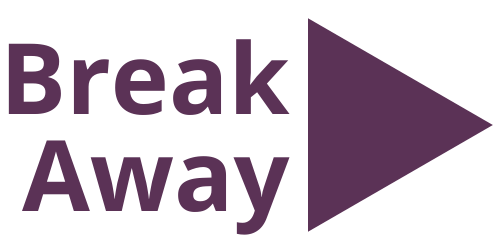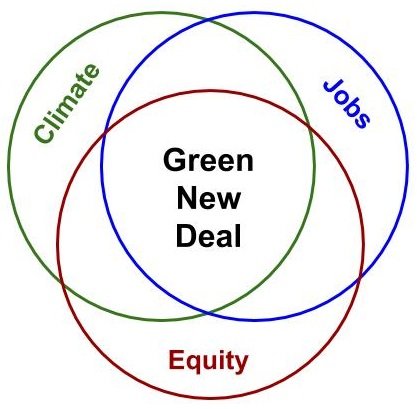There is No Planet B
The climate crisis is not some singular event that will happen far into the future. It is happening NOW! According to the President of the UN General Assembly, we only have 8 years to prevent irreversible damage to the climate. The climate crisis impacts all of us and, as folks committed to our communities and each other, we all have a responsibility to care about it. If you dig a bit deeper (you know how we do over at Break Away), you’ll find that this crisis isn’t just about a changing climate—this is also about climate justice.
What is climate justice?
“Climate justice operates at the intersection of racial and social rights, environmental and economic justice. It focuses on the roots [sic] causes of climate change, and calls for a transformation to a sustainable, community-led economy.” (Grassroots International)
What is environmental justice?
“Environmental justice is the fair treatment and meaningful involvement of all people regardless of race, color, national origin, or income, with respect to the development, implementation, and enforcement of environmental laws, regulations, and policies.” (EPA)
Indigenous Folks Have Been Leading the Charge on Climate Justice
Indigenous and native communities and people have a connection to and knowledge systems based around the physical environment and land. This makes Indigenous peoples uniquely positioned to understand the perils of climate change. From water rights to recovering and revitalizing stolen land to pipeline protests, Indigenous peoples have been at the forefront of the fight for climate justice for decades. The Dakota Access Pipeline protests of 2016-17 highlighted Indigenous activism, specifically Indigenous youth activists.
Intersectionality is Crucial to Combat the Climate Crisis
Along with Indigenous peoples, BIPOC and women of all races are disproportionately impacted by the climate crisis. They are already living with the consequences of doing nothing, so Latinx folks and women are serving as leaders in the climate justice movement and fighting for their communities and the planet.
The climate crisis stems from multiple oppressive systems. It’s built on capitalist exploitation, white supremacy, and patriarchy. Any proposed climate justice legislation must address these overlapping systems of oppression. Solving only the climate crisis (if that were even possible) is like treating the symptom, not the disease.
The End of Fossil Fuel
Just 100 (fossil fuel extraction) companies make up for 71% of global greenhouse gas emissions. The need to transition to renewable energy is clear. However, fossil fuels are profitable and we all know that money talks. You may not be able to go buy an electric car, but you can demand your representatives hold these companies accountable.
There is No Planet B
So where do we go from here? It’s pretty easy to feel frozen by the doom and gloom of it all, but there are ways to make an impact in the fight for climate justice.
Individual Sustainability
Recycle
To recycle something is to break it down and use its materials to create that same thing again. You can recycle through your county’s waste management.
Not all recyclables are created equal. Cans, glass, and paper are easy to recycle. Plastic is a lot harder and knowing what is and is not recyclable is tricky
Google “[your county] recycling” to see what materials you can actually recycle, because every county is different
If you don’t have a recycling bin: In most places it’s free to get one and the cost of recycling is already included in your trash bill
If your city doesn’t recycle: You can find independent recycling centers to drop your items off at
Reuse
“One man’s trash is another man’s treasure” — said somebody at some point and now lots of people say it.
Repurpose single use items into something new, like using the containers of spent candles as planters or tschotske holders
Join a local Buy Nothing group to find a new home for items you no longer need or to find something you need that someone else is rehoming
Reduce
Ultimately, what we all need to do, both as individuals and a society, is radically reduce our consumption.
Borrow rarely used or large items from friends/folks in your community (think a drill or pressure washer)
Think twice about buying that new outfit at the mall. Textile waste (mostly from the fast fashion industry) makes up for over 11 million tons of trash per year
Large-Scale Climate Justice
Doing your part is all well and good (and certainly eating less meat is beneficial), but individual sustainable living is but a small sliver of the change that needs to happen. Our world has to drastically change in order to combat the climate crisis and for climate justice to come to fruition. And there are solutions out there.
Break Free From Plastic
Break Free From Plastic has SIX different campaigns that you can get involved in, including one on promoting plastic free campuses. With education and resources readily available, Break Free From Plastic makes it easy to do something.
The Green New Deal
Senator Ed Markey and Representative Alexandria Ocasio-Cortez revived their push for the Green New Deal this past Tuesday. The Green New Deal is a three-pronged resolution to combat the climate crisis: reach net-zero emissions by 2050; create new jobs; and fight racial, gender, and economic inequity. Contact your representatives about supporting climate legislation like the THRIVE Act. Other countries have also proposed proponents of the Green New Deal into their plans to combat the climate crisis.
Modified from an April 2021 post.




